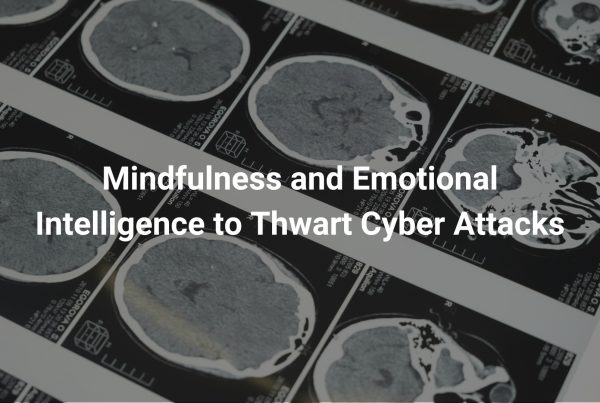Authors: Dr. Abbie Maroño
Published: August 27, 2024
As adults, we can’t go out and play in the dirt or collect insects in the garden without raising a few eyebrows. But for children, these activities—like building forts or imagining entire worlds—are essential for their development and growth. This phase of life, filled with play and exploration, is something we must fiercely protect.
As we grow older, we inevitably face the complexities of taxes, mortgages, work-life balance, and other burdens. However, during childhood, children must be nurtured and cared for, with caregivers protecting their time of play and innocence. But what happens when this period of innocence is interrupted, and children are prematurely thrust into adult responsibilities?
Unfortunately, this is the reality for many children burdened with parenting roles, a phenomenon known as “parentification.” Parentification can manifest in various ways, such as taking care of younger siblings, managing household chores, or providing emotional support to parents or caregivers. It often occurs due to neglectful or emotionally immature parents, the loss of a caregiver, or parents struggling with substance abuse or severe mental health issues. Regardless of the cause, this role reversal—where children assume responsibilities typically held by adults—can profoundly impact their emotional and psychological well-being.
Short-Term Effects
In the short term, parentified children often experience heightened levels of emotional stress. This is hardly surprising given that children’s brains are not fully developed; they are still adapting to and learning to navigate the world. They are supposed to learn emotional regulation and how to handle responsibility from their caregivers as they mature. Without this guidance, how are they supposed to know how to manage these tasks? And how can they be expected to cope with their brains still developing, especially the prefrontal cortex, which is crucial for responsible decision-making and emotional regulation?
As such, it is unsurprising that these children show an increase in anxiety and depression due to the pressure and responsibility of managing adult-like tasks. They may also face emotional burnout when juggling their developmental needs with caregiving duties.
Moreover, our internal environments—how we feel and our emotions—lay the groundwork for our behavior. Consequently, behavioral issues are another immediate consequence. Some children may exhibit behavioral problems such as aggression or defiance, reacting to the stress and frustration of their responsibilities. Alternatively, others might become withdrawn and socially isolated, struggling to balance their dual roles. The additional time and energy devoted to caregiving duties at home can also detract from their ability to focus on their studies and participate in extracurricular activities. This inevitably results in higher rates of absenteeism from school, hinders their academic progress, and creates a cycle of stress and underachievement as they struggle to keep up with their peers while managing adult-like tasks
Long-Term Effects
Sadly, the long-term effects can be even more profound. Research suggests that children who have their childhood snatched from them are at higher risk for chronic anxiety and depression. The emotional burden and stress they endure can persist well into adulthood, sometimes contributing to complex trauma and PTSD in severe cases.
The importance of forming healthy attachments in early relationships cannot be overstated. Caregivers play a crucial role in nurturing these attachments, providing a sense of security and trust that forms the foundation for future relationships. When this formation is disrupted, children may lack the opportunity to observe and learn from healthy attachment behaviors and thus struggle to form healthy attachments later in life. Trust issues are also likely to arise, with many finding it hard to rely on others after having been relied upon so heavily themselves.
Imagine what it must be like to grow up without the experience of feeling truly secure in the care of another or to have had to carry burdens beyond your years, responsibilities that adults should have shouldered. Consider for a moment how confusing and overwhelming this must be. Adult responsibilities are challenging enough for adults; confronting such demands as a child introduces a complexity that no child should have to manage. As such, children may experience ongoing confusion about their identity and appropriate roles in relationships. They might also struggle to transition into typical adult roles due to the premature assumption of adult responsibilities during childhood.
However, it’s important to note that not all long-term effects are negative. Some research suggests that individuals who have experienced parentification can develop heightened empathy, responsibility, and resilience. Having navigated complex emotional landscapes from a young age, they may excel in problem-solving and managing difficult situations. Nonetheless, it remains true that no child should have to demonstrate this level of resilience. There are healthier and more appropriate ways for children to learn such skills that do not involve having their childhoods taken from them.
Coping Later In Life
We cannot turn back the clock and give children their childhood back as much as we might wish we could. However, there are ways we can help individuals cope later in life. Therapeutic interventions, such as trauma-focused therapy, have shown effectiveness in addressing the emotional wounds caused by parentification. These therapies can help individuals process their experiences, develop healthy coping mechanisms, and build resilience.
Furthermore, building a strong support network can be crucial. Research indicates that social support plays a significant role in buffering the negative effects of childhood adversity. Engaging in support groups or seeking guidance from mentors can provide individuals with a sense of belonging and understanding, which can be particularly beneficial for those who have experienced parentification.
Practicing self-care is also essential. It is well established that self-care practices, such as mindfulness meditation, yoga, and exercise, can help reduce stress and improve overall well-being. These practices can help individuals manage the lingering effects of parentification and develop a stronger sense of self.
Finally, I want to leave you with this. If you are a parent, consider the roles and responsibilities you assign to your children. Are they being given the space and freedom to be children, to explore, play, and learn without the weight of adult concerns? If the answer is not a confident “yes,” it might be time to reevaluate your approach. Consider reassessing your expectations, seeking guidance from parenting resources, or simply spending more quality time engaging in activities that nurture their well-being and development.





